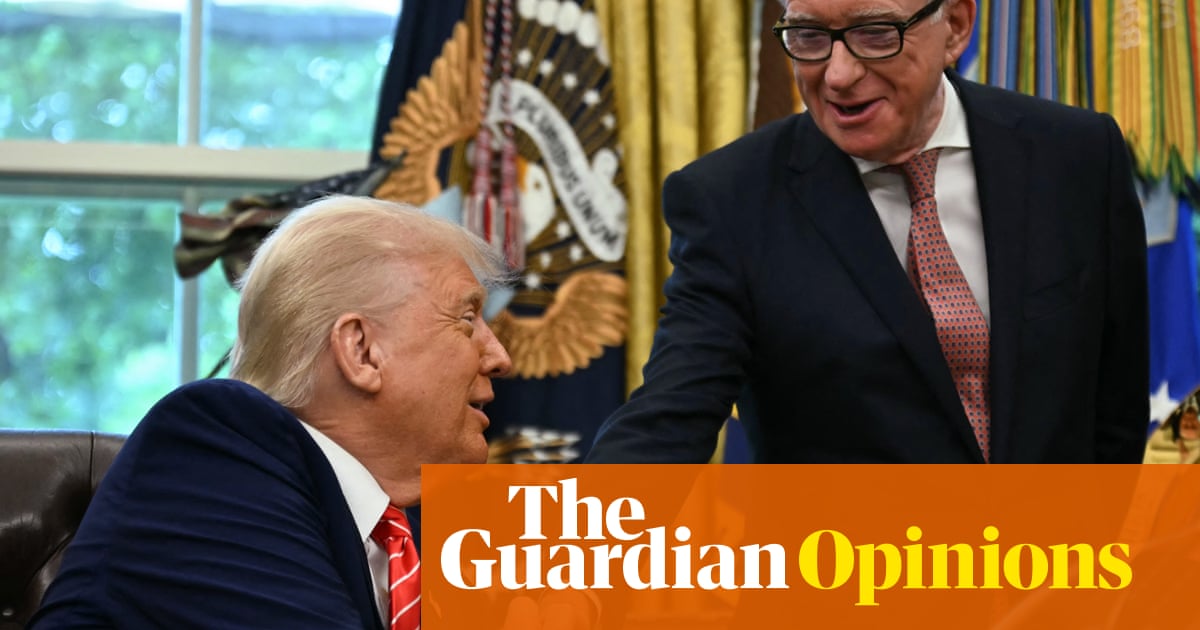Three days ago,Donald Trumppromised an announcement that would be very possibly the greatest announcement in the whole history of announcements. Come Thursday morning, he said the US and the UK had reached a full and comprehensive trade deal.
I guess a lot depends on what you mean by the words “greatest announcement” and “full and comprehensive”. As details of the deal began to emerge, it rather looked as if the UK had managed to negotiate a worse deal with the US than we had even two months ago. One that was hardly transformative. Just reversing some of the damage that had been done to the UK by the US starting a global trade war. Tariffs as a protection racket.
Still, a deal is a deal. These days,Keir Starmerhas learned you get what you can get. And it’s more than any other country has got so far. It remains to be seen if others come out of the White House with anything better. But Keir wasn’t the only one who needed a quick result. Trump did, too. He had a reputation to maintain as a deal-maker and Americans were beginning to get twitchy that none had been reached. It wasn’t clear if this was a victory for crack negotiating teams, or a sign that both the US and the UK had been a bit desperate. So both sides were keen to chalk the deal up as a win for themselves.
Then there was the choreography to think of. A televised phone call between the president and the prime minister, before each gave separate press conferences. In both instances it was Agent Orange to go first. Presumably, because no one was sure he could stick to the script. When you do a deal with The Donald, there’s no guarantee he isn’t going to change his mind before the ink is dry. It would be no surprise if he were to announce new tariffs by the weekend.
Cut to the Oval Office where, 45 minutes later than planned, Trump was on the phone to Starmer. Bizarrely, he started by talking about rare-earth minerals, which weren’t part of the deal. He seemed to have forgotten what had been agreed with whom. His minders set him back on track and there were warm words about one of America’s greatest and most cherished allies. You wondered why he had previously treated the UK with indifference if he cared so much.
“This is an historic day,” said Starmer. All the more so because it had happened on VE Day. Keir could almost believe he was Winston Churchill addressing a jubilant nation after six years of war. At this point, it looked as if Agent Orange might drop off.
Trump’s powers of concentration aren’t all they might be and he finds it difficult when he’s not the centre of attention. Keir did his best to stop the president from flatlining by showering him with flattery. The Donald had been the best. Everyone and everything would be nothing without him.
At this, Trump began to perk up. The US and the UK had been working for years on a trade deal. People had said it couldn’t be done, he boasted. And yet he had done it in a matter of weeks. Truly, he was incredible. He didn’t seem to realise that he hadn’t negotiated a full trade agreement. Just a small side hustle encompassing a few sectors. There was a ripple of applause from the sycophants in the Oval Office when Trump managed to press the right switch to disconnect the call.
The Donald then invited his commerce secretary, Howard Lutnik, to expand a little on the deal. Howie is reportedly a billionaire but he also delivers a pitch-perfect impersonation of a halfwit. It’s hard to imagine him in a room negotiating the sale of a secondhand car. “This was the president’s deal,” he cooed. “If it had been left to me, it would have taken at least three years. He did everything. He is the closer.” Imagine. Howie had just told the entire world he had been out of his depth in a puddle. Truly, the world is fucked if he is one of its masters.
Next up was the British ambassador,Peter Mandelson. Bowing deeply. Full of reverence. Mandy was born for days like these. When all that is required is oleaginous smooth-talking masquerading as sincerity. Truly, The Donald was nothing short of a genius. He wasn’t fit to wipe the president’s shoes. Trump had achieved more than anyone else in the history of the world. Thank you, thank you. We have reached the end of the beginning, he sobbed. Everyone was getting in on the Churchill act this VE Day. Trump nodded. Mandy was right about him.
Back in the UK, Starmer was just starting his own press conference at the Jaguar Land Rover factory. Britain was open for business, he said. No less than the whole future of the UK had been saved. Keir, alone, had altered the course of history. Some men are born great, some achieve greatness and some have greatness thrust upon them. Keir had managed all three. This was bigger than VE Day. Bring out the bunting. Drink the pubs dry. We were entering a new era of prosperity.
This wasn’t just a victory for the UK. It was a victory for Starmer personally. Some people had said he should stand up to Agent Orange. Put the phone down. Don’t give in to bullies. But Keir had emerged triumphant. His brown-nosing had achieved the impossible. Which was, er … not quite as good as the deal we had not so long ago. It was time for the king to get out his silk pyjamas, line up the Diet Cokes and the Haribos and prepare for his sleepover with the president. If Keir had to suck it up, then so could Charles.
